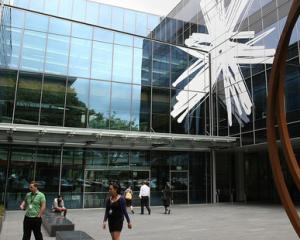Telecom has scored something of a coup, being selected for preferred negotiations for the ultra-fast broadband (UFB) initiative and the spin-off for investors could be the listing of Chorus on the NZX.
Crown Fibre Holdings yesterday named Telecom for preferred negotiations for 25 areas of New Zealand.
Enable Networks was named to cover Christchurch and Rangiora and Flute Joint Networks (Dunedin, Aurora Energy and PowerNet) to cover Dunedin.
However, it appeared from the reading of the announcement that Telecom could also be eligible for Christchurch and Dunedin as the only areas it was excluded from were the ones announced last week in the central North Island, Whangarei and possibly Timaru.
Flute has been short-listed for discussions about covering Queenstown and Invercargill.
Craigs Investment Partners broker Chris Timms said Telecom had earlier indicated that it would structurally separate Chorus off, if that was what it took to be part of the UFB initiative.
"The advantages of that will be a stand-alone business and more transparency about the businesses.
I think the value of the two businesses will be worth more than the current Telecom share price indicates."
Telecom would have the option of partial separation, splitting the company out completely, or allocating shares on a pro-rata basis.
"It will be publicly held, but Telecom is unlikely to go down the track of selling it off to someone else.
"We could end up with another listing on the sharemarket."
Investors could have the choice of investing in Chorus but not Telecom, or Telecom and not Chorus, he said.
Structural separation would also give Telecom the chance to look at its other arms like Gen-i and Southern Cross Cables.
The market reacted positively, pushing Telecom shares up 6c on the announcement, Mr Timms said.
Telecom chief executive Paul Reynolds said the company had worked tirelessly to refine its proposal in order to meet the needs of shareholders while at the same time achieving the objectives of the Government.
"We remain firmly of the belief that a structurally separate Chorus as the cornerstone of the national framework for fibre is the most efficient and effective way to deliver the Government's fibre vision and that is reflected in our proposal."
Telecom continued with its openness to partnership with other public- and private-sector owners of fibre assets where partnership could improve the overall economics and deliver fibre further and faster for New Zealand.
Labour Party communications and IT spokeswoman Clare Curran was critical of Telecom receiving the bulk of the $1.5 billion UFB contract, saying it entrenched fears of a commercial monopoly on the newest infrastructure network.
"This is perhaps the most important decision in telecommunications policy in a decade.
"It will have implications for decades to come.
"But it's been carried out in secret, with no ability for expert industry analysis and discussion and costing $1.5 billion of taxpayers' money."
It was apparent that Telecom would win the contract to lay fibre in 25 out of 33 regions, including Wellington and Auckland.
It was still possible that Telecom could win Christchurch and Dunedin, leaving it with at least 70% and possibly up to 84% of the UFB network.
"That all adds up to a dominant monopoly in charge of our newest network, with a history of under-investing in its networks, and no great incentive to transfer people from the existing copper network to fibre," Ms Curran, the MP for Dunedin South, said.



